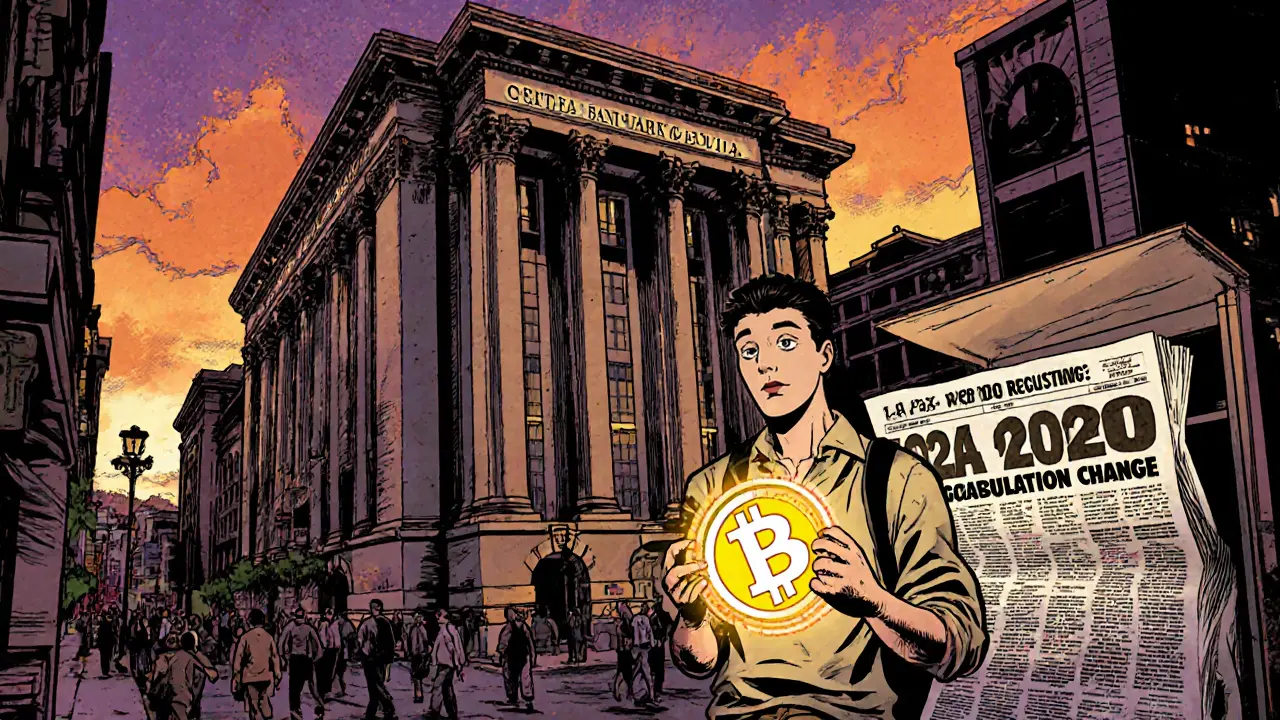Bolivia Crypto Trading Penalties: What the Law Says in 2025
Learn the current legal penalties for crypto trading in Bolivia, how the regulatory framework works, and practical steps to stay compliant in 2025.
Read MoreWhen it comes to crypto penalties in Bolivia, the legal consequences for using or trading cryptocurrencies in a country that officially banned them in 2014. Also known as crypto prohibition in Bolivia, it’s one of the strictest stances in Latin America. Unlike countries that regulate crypto, Bolivia outright forbids it—no licenses, no exchanges, no bank support. The central bank declared digital currencies illegal in 2014, calling them a threat to financial stability. But here’s the twist: people still use them. Thousands trade on P2P platforms, send remittances, and even mine Bitcoin in remote towns. So what happens if you get caught?
The law doesn’t spell out jail time for holding crypto, but cryptocurrency regulation in Bolivia, is enforced through banking and financial oversight. Also known as financial crime enforcement, it targets anyone who uses crypto to bypass official payment systems. If you’re caught using Bitcoin to pay for goods, or sending funds through a non-approved channel, you could face fines, account freezes, or even criminal charges under anti-money laundering rules. Banks are required to report suspicious activity, and many have shut down accounts tied to crypto wallets. The government doesn’t track individual users directly—but banks do, and they report to regulators. This creates a gray zone: you can’t legally use crypto, but you can still access it. That’s why underground networks thrive. WhatsApp groups, Telegram channels, and cash-based trades are the real market. You won’t find a crypto ATM in La Paz, but you’ll find someone who’ll trade you Bitcoin for bolivianos in a parking lot.
It’s not just about punishment—it’s about control. Bolivia’s ban was meant to protect its fragile economy from volatility and foreign influence. But the real impact? It pushed crypto into the shadows. People didn’t stop using it; they just got smarter. Some use it to send money home from abroad, avoiding expensive wire fees. Others use it to buy imports when traditional banking is too slow. The government’s crackdown hasn’t stopped the flow—it just made it riskier. And while penalties are rare for small traders, those running large-scale operations or acting as intermediaries face the harshest consequences.
What you’ll find in the posts below are real stories and breakdowns of how crypto survives in hostile environments—from Nigeria’s banned-but-bustling P2P scene to how Bolivia’s rules compare. You’ll see how people adapt, what tools they use, and why the ban hasn’t worked the way officials planned. There’s no sugarcoating it: trading crypto in Bolivia carries real legal risk. But if you understand how the system works, you can make smarter choices—even in a place where the law says it shouldn’t exist.

Learn the current legal penalties for crypto trading in Bolivia, how the regulatory framework works, and practical steps to stay compliant in 2025.
Read More